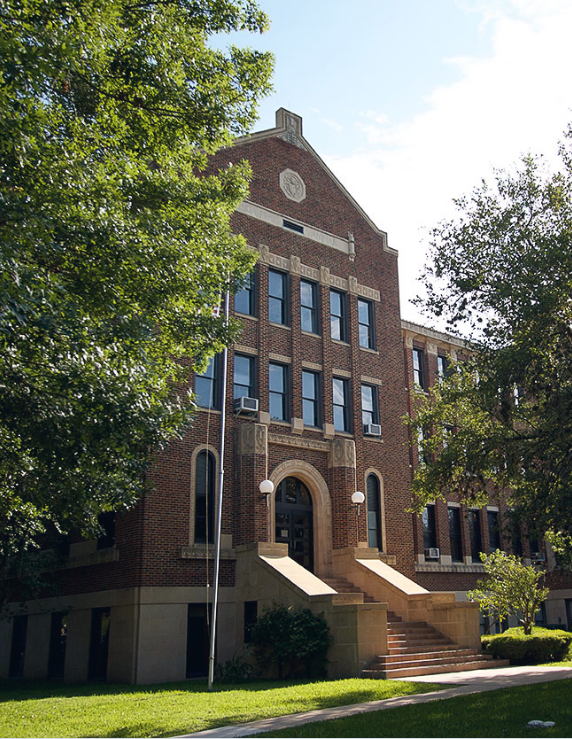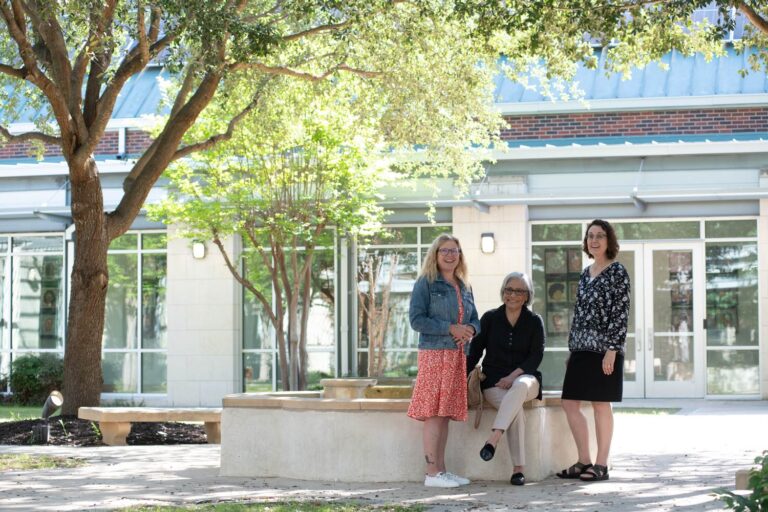by J. Michael Parker
Fear leads to apathy – one of the biggest problems facing the Christian Church today – according to a Franciscan theologian in the last of three lectures on Fear and Faith during Oblate School of Theology’s 2019 Summer Institute.
Addressing 180 at OST’s Whitley Theological Center, Fr. Daniel P. Horan, OFM, assistant professor of systematic theology and spirituality at Chicago’s Catholic Theological Union,
remarked June 12 that apathy is often interpreted as meaning “without interest” or “having no feelings,” but he said the late German theologian Dorothy Soelle defined it as “a condition in which people are so dominated by the goal of avoiding suffering that it becomes a goal of avoiding relationships and contacts altogether.”
“As a consequence, they must repress all feelings; hence the avoidance of relationships and connections with others. Soelle said that there is a corresponding disappearance of passion for life, and of the strength and intensities of its joys,” he added. “Fear leads to apathy – closing in on oneself to avoid suffering, and building barriers and walls to close off the experiences of others; it’s the solipsistic and narcissistic protection of oneself at all costs – even the cost of joyful living,” Fr. Horan said. “Apathy leads to a false belief in self-sufficiency and independence from others.”
The priest remarked that apathetic people’s hope is the irrational aspiration for a life without loss – being in the world without suffering. “Fearful people tend to be apathetic by nature; he said, but added, “The hope of Christianity – real love – risks vulnerability, opening itself to relationships; it doesn’t fear pain, suffering or even death,” the priest continued.
“The hope of Christianity – real love – risks vulnerability, opening itself to relationships; it doesn’t fear pain, suffering or even death”
Fr. Horan said apathy leads to what he refers to as “Holy Spirit atheism,” which promotes a false sense of self-determination and self-reliance that shuts out others from relationships and leads to forgetting God’s life-giving presence among us as Spirit. Such people might believe in God in general, but he said a worldview shaped by apathy blots out faith in the Spirit’s active work in the Church and the world. Symptoms of Holy Spirit atheism are found both in the daily life of both laity and Church leaders, he added.
“Holy Spirit atheism” assumes that everything depends on the individual, the priest explained. “It’s the great symptom of apathy and a kind of atheism. More egregious are choices by some Church leaders who cover up abuse for the sake of maintaining the Church’s public reputation. It shows a presumptuous attitude and stands in conflict with the Church’s belief that God is active in the Church and the world.
He commented, “If one believes in the ongoing action of the Holy Spirit, in which all the faithful are united in baptism, the humility of their position as ministers, and not mini-monarchs or corporate CEOs, would place trust in the Spirit and they might have done something different; we might have done something different.”
Fr. Horan observed there have been “many clear signs of apathy and inability to see the clear suffering of others, especially survivors of abuse, so many have left or reshaped their responses when avoidance no longer was an option.”
“If, as we profess, the Church was birthed at Pentecost with the sending of the Spirit, the ongoing presence and action of the Holy Spirit should be the founding principle of how we think of Church; but the attitude that “It’s all up to me implies that God is not at the helm or operating in the Body of Christ.” Even more egregious, he said, are decisions by some Church leaders who cover up abuse for the sake of maintaining the Church’s public reputation, he said.
Noting the adage that “the road to hell is paved with good intentions,” he commented that “it’s also paved with fear of litigation, of admitting vulnerability to suffering or of hearing of the suffering of others, or of acknowledging that God is alive.”
He also cited what he called the suppression of the sensus fidelium – the sense of the faithful – the manner in which all the baptized participate in the magisterial teaching of the Church. “This comes to us from the Church’s highest teaching at the Second Vatican Council in Lumen Gentium, the Dogmatic Constitution on the Church,” Fr. Horan explained. Yet he added that both the laity and the ordained “too often neglect or suppress this matter of faith when it comes to consultation of those outside the hierarchical leadership.”
He noted that St. Anselm, an 11th-century Archbishop of Canterbury and Doctor of the Church, described theology as fides quaerens intellectum – “faith seeking understanding,” not faith being repeated blindly. “It has to be unpacked and understood in a more profound way. That’s the role of the Spirit in the Church.”
We should remember, the priest observed, “that it’s not simply up to us. We should adore and glorify the Holy Spirit by recognizing God’s continuing presence and action in the world. Here’s the catch: Even if that action is not exactly what we may personally want or desire, and even if it drives you and me into places of pain and suffering, it will drive us out of apathy to a place of vulnerability where we have to face suffering in our world and one another.”
Fr. Horan said we must overcome the unwitting Holy Spirit atheism that exists in our Church. He called for development of a renewed theology of the Spirit, particularly in times of crisis when fear and apathy are destructive. “I believe we need to put the Spirit back into spirituality,” he commented.
“Each Sunday in the liturgy, Catholics profess to believe that the Spirit is the Lord and giver of life, reflecting the early Christian community’s affirmation of the Spirit’s divinity in prayer and in worship that was made long before it was codified in the Nicene Creed. It was first affirmed in liturgy, in the prayer of the People of God. You’ve heard the expression Lex orandi, lex credendi. It means that the law that rules our prayer is the law that shapes what we believe,” the priest asserted.
He finished by citing numerous illustrations from the Genesis, Exodus, Job and Psalms to show the Holy Spirit’s action in creation of both humans and non-human creatures.



